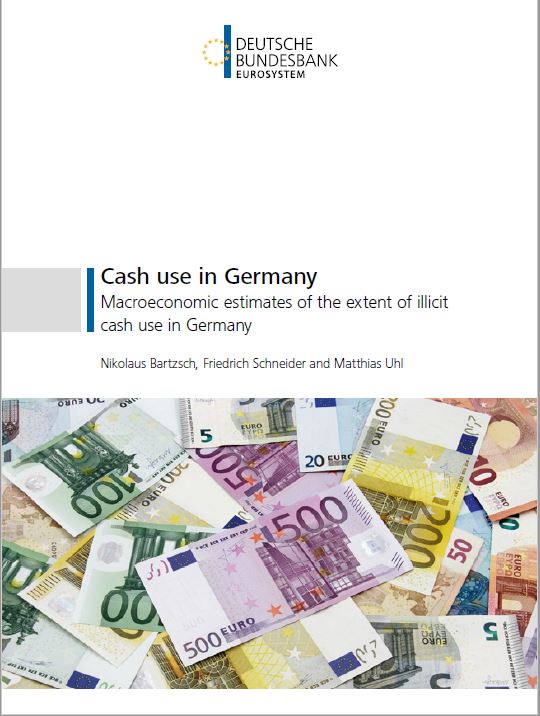
Cash use in Germany Macroeconomic estimates of the extent of illicit cash use in Germany
Cash payments are simple, secure, efficient and anonymous and therefore popular with consumers. At the same time, these properties also make cash a focal point for potential illegal uses. An oft-voiced opinion in the public debate is that cash promotes the shadow economy and is used as a means of financing crime.
With these issues in mind, the Bundesbank has conducted a study on the extent of illicit cash use in Germany, in collaboration with Professor Friedrich Schneider of the Johannes Kepler University Linz. The study contains an overview of current economic research on the use of cash in the shadow economy as well as fresh empirical estimates by the authors. A panel econometric analysis looks at the impact of illicit cash use on cash lodgements at Bundesbank branches. The significance of illegal motives as drivers of the demand for small, medium and large denominations of banknotes from the Bundesbank and of domestic banknote demand is investigated using a time series econometric regression analysis.
The study concludes that direct references to the volume of banknote circulation or the circulation of large-denomination banknotes are not suitable for analysing the demand for cash in the shadow economy. The results from the authors’ empirical studies are mixed: shadow economic influences can only be proven for some of the alternative proxy variables used for the shadow economy. As a general rule, the illegal nature of such activities means that it is very difficult to provide hard research-based evidence about the scale of the cash demand resulting from the shadow economy and criminal activity. Empirical studies of the shadow economy are therefore fraught with above-average uncertainty, meaning that all results should be interpreted with caution.
1 MB, PDF